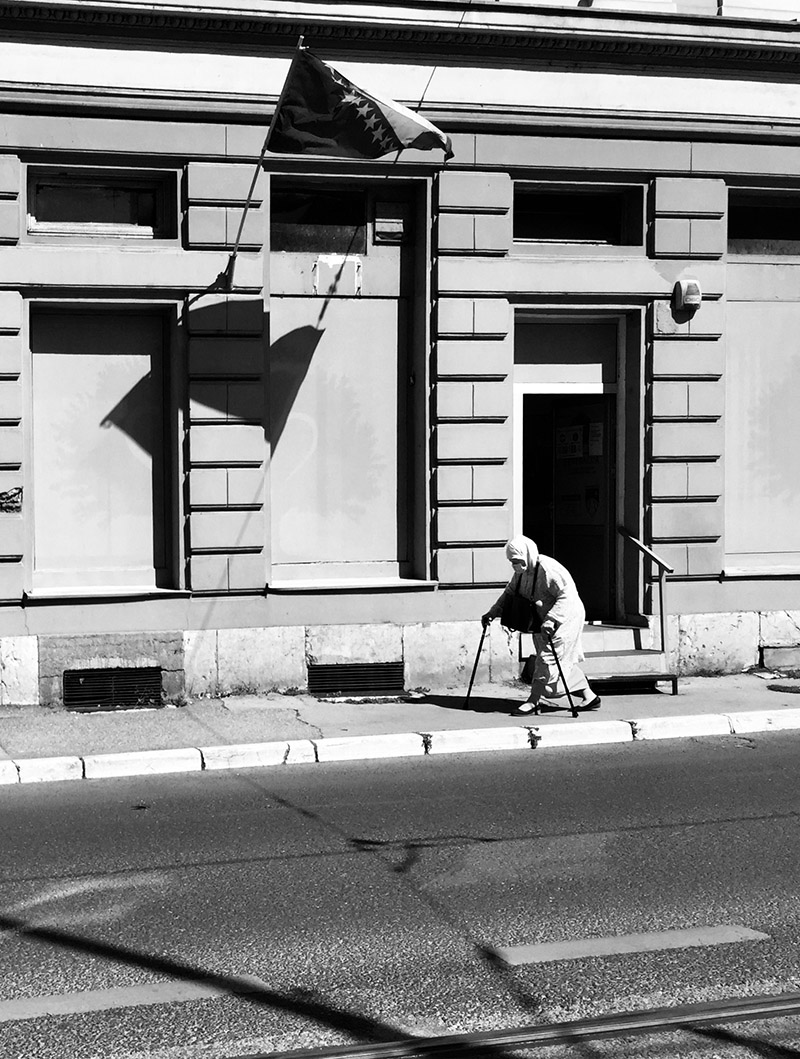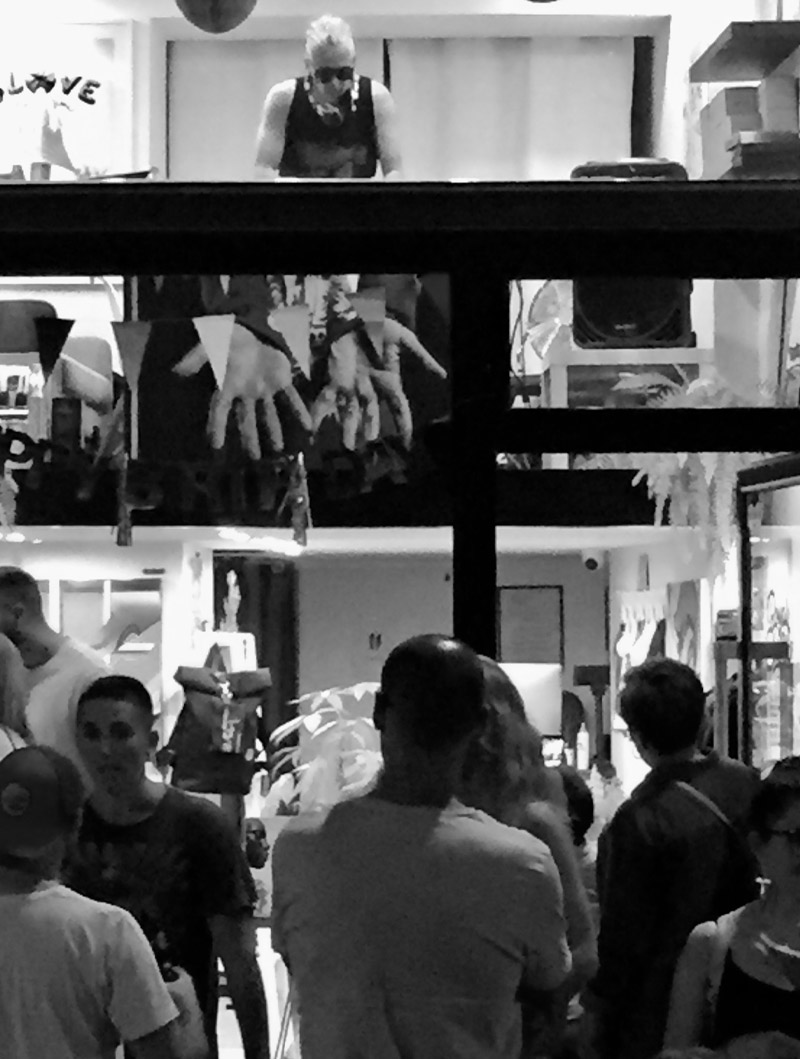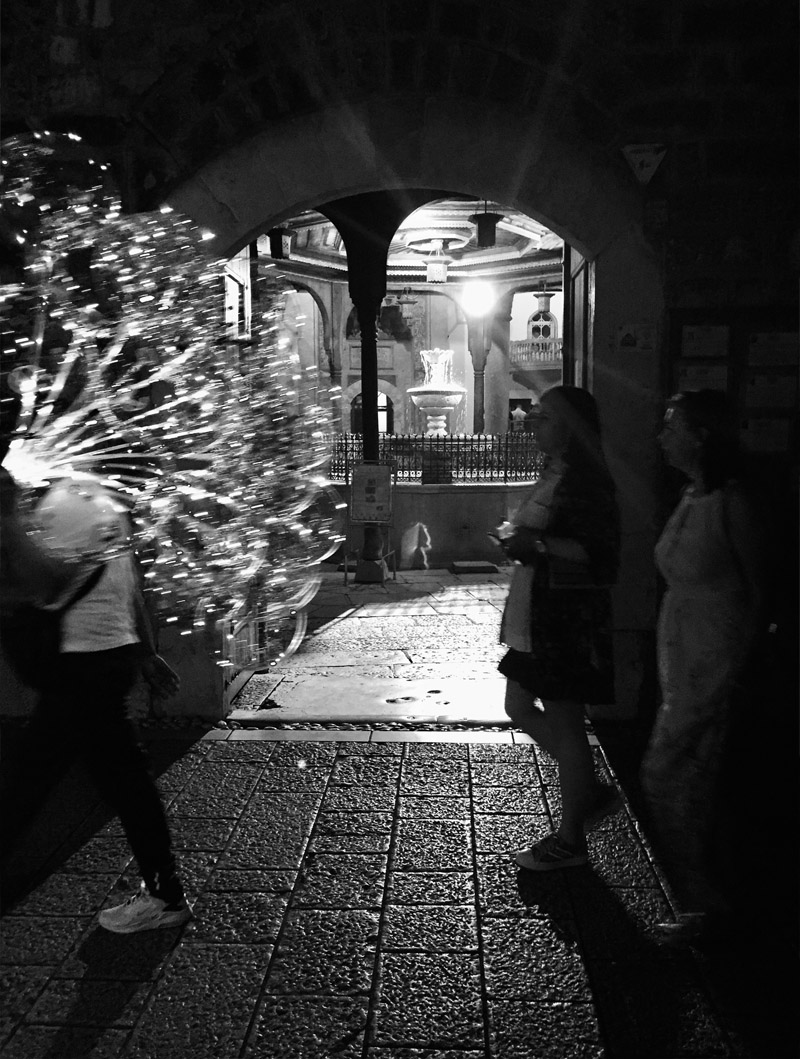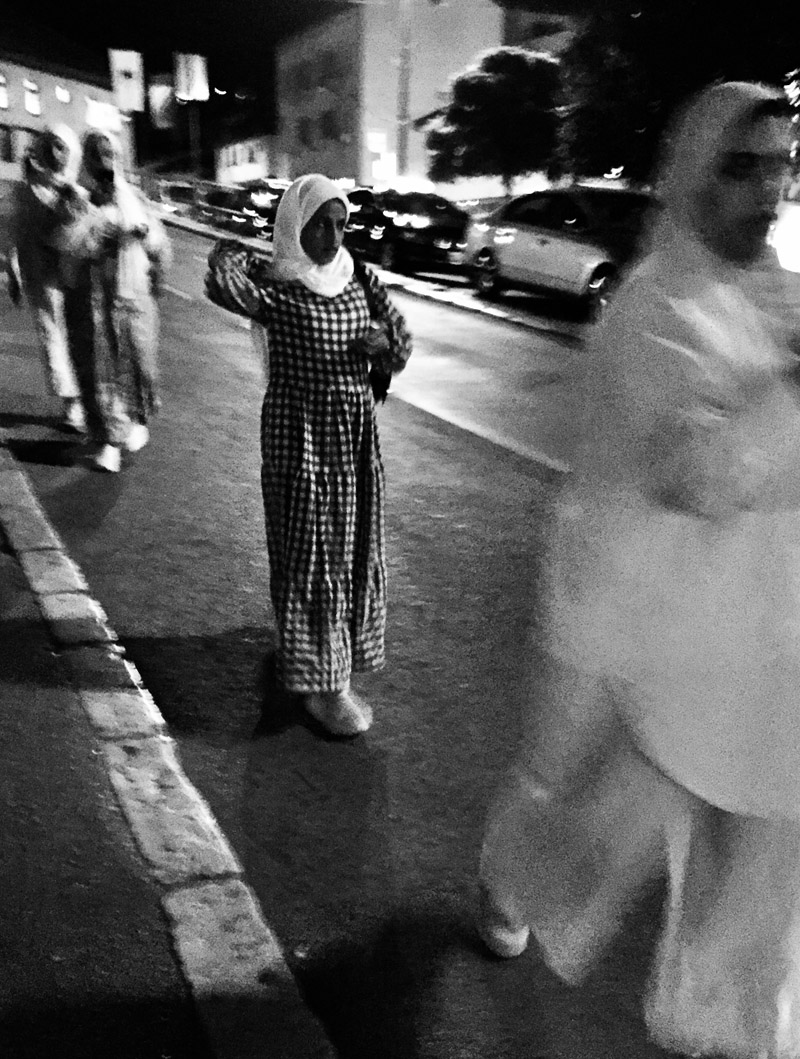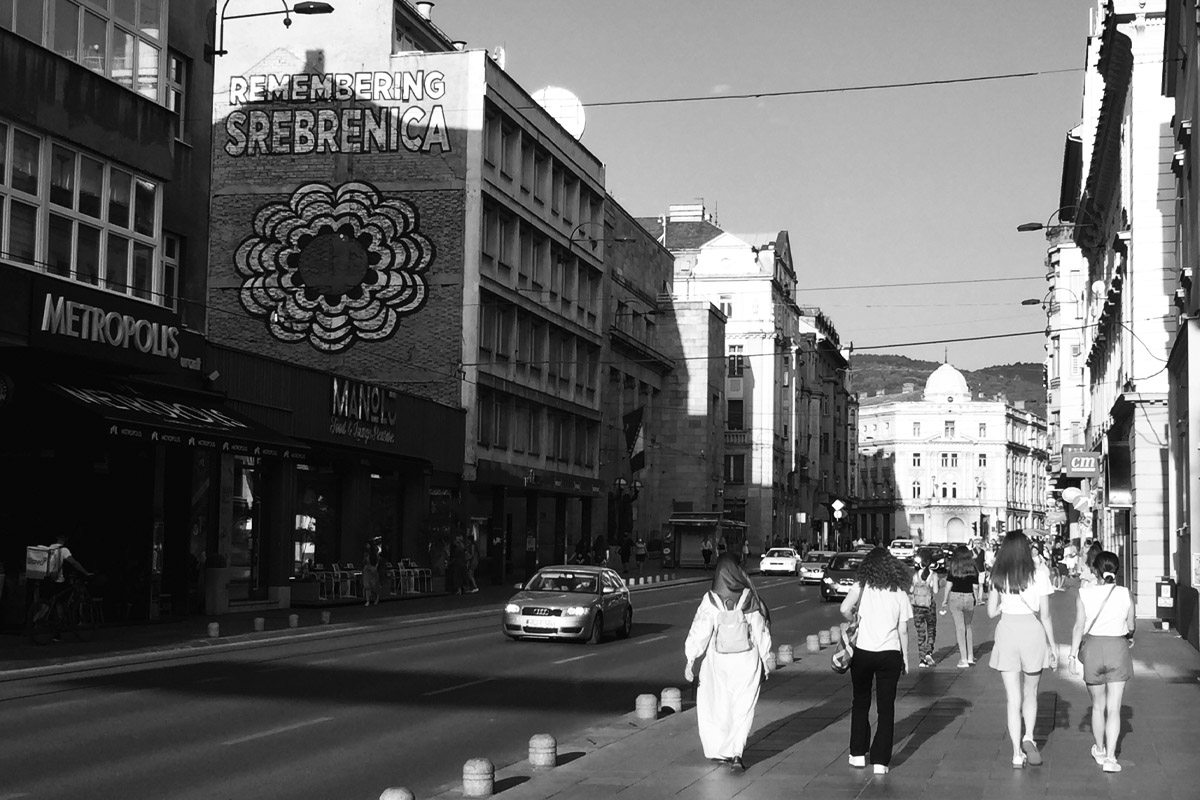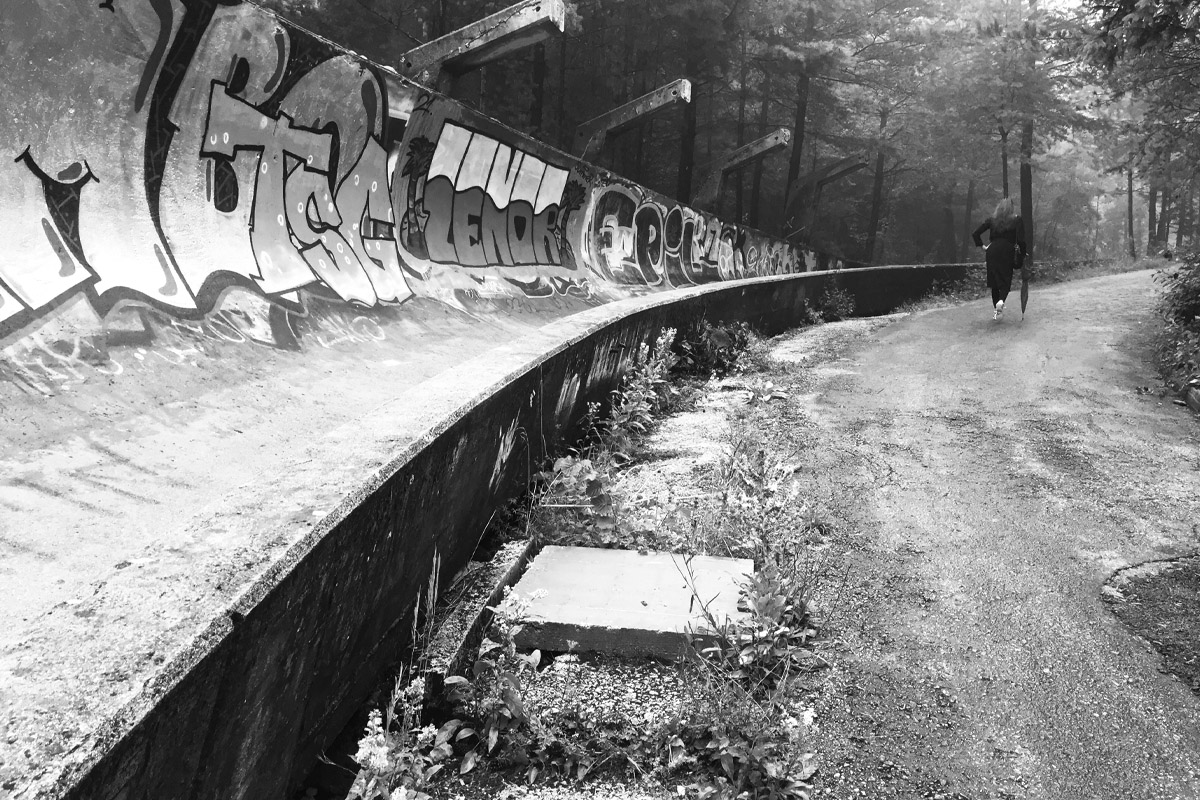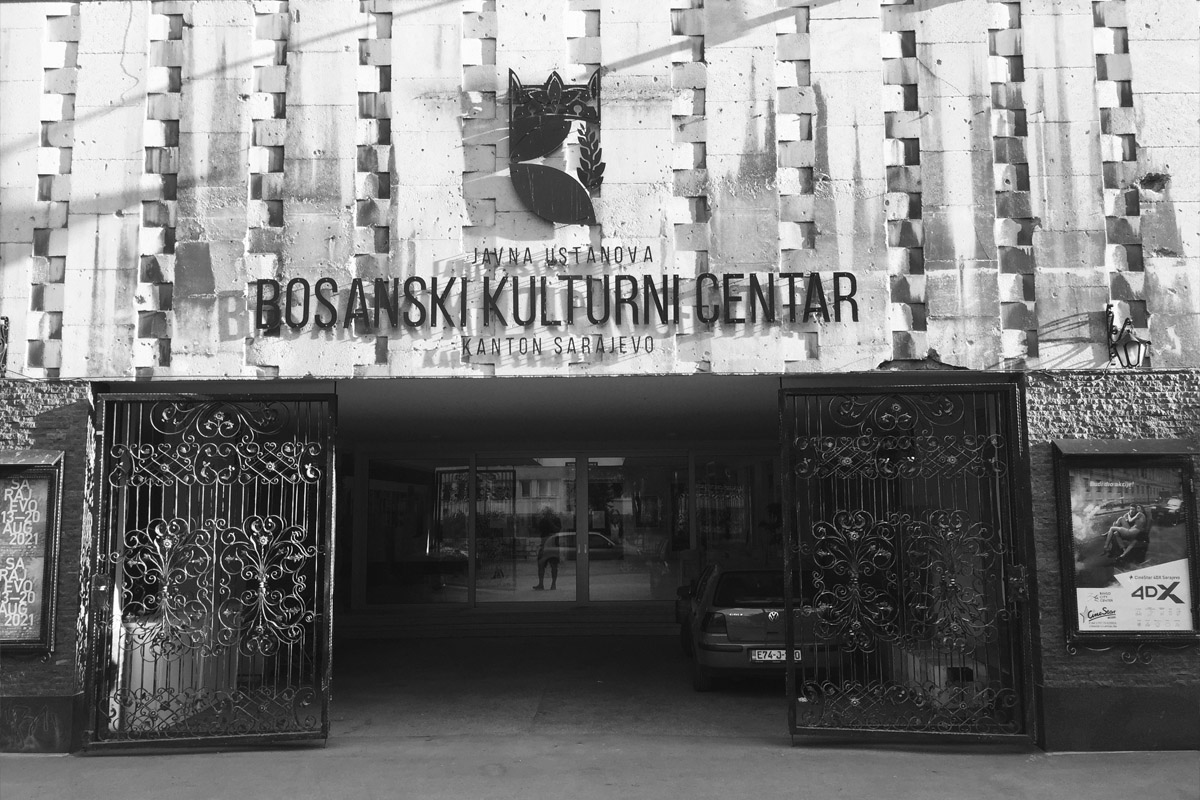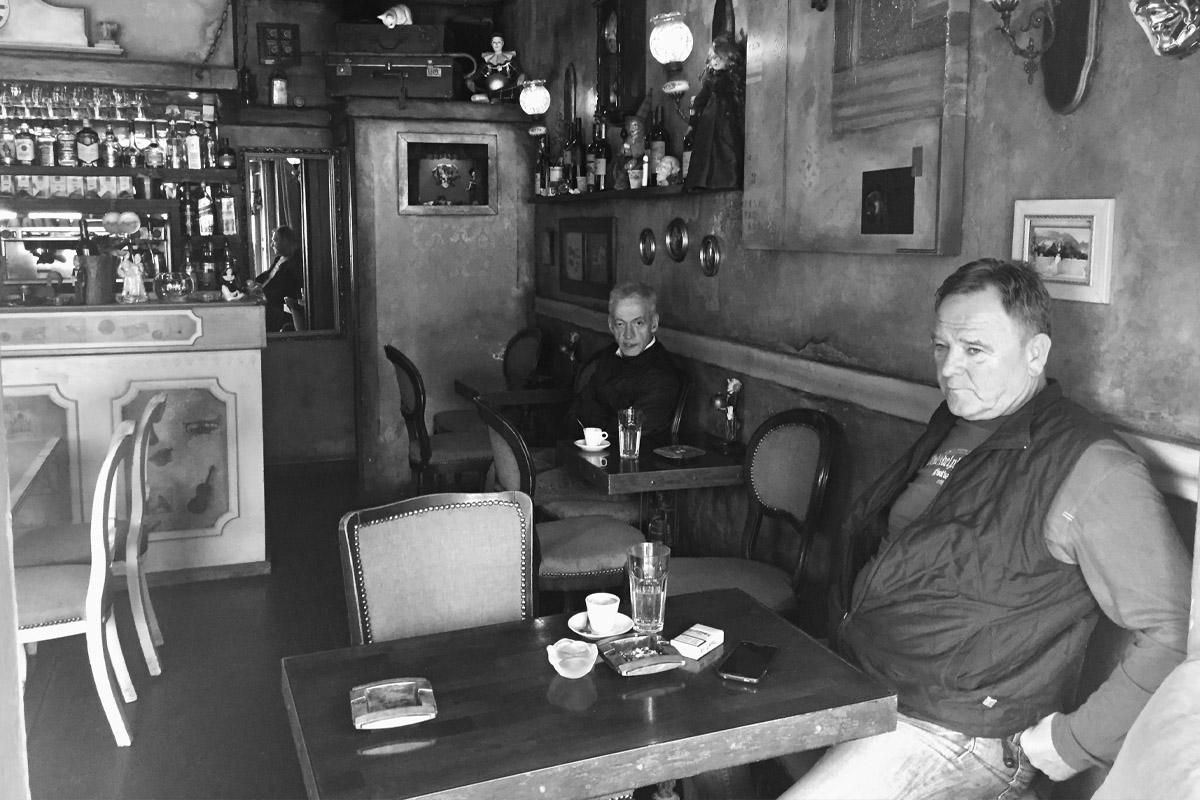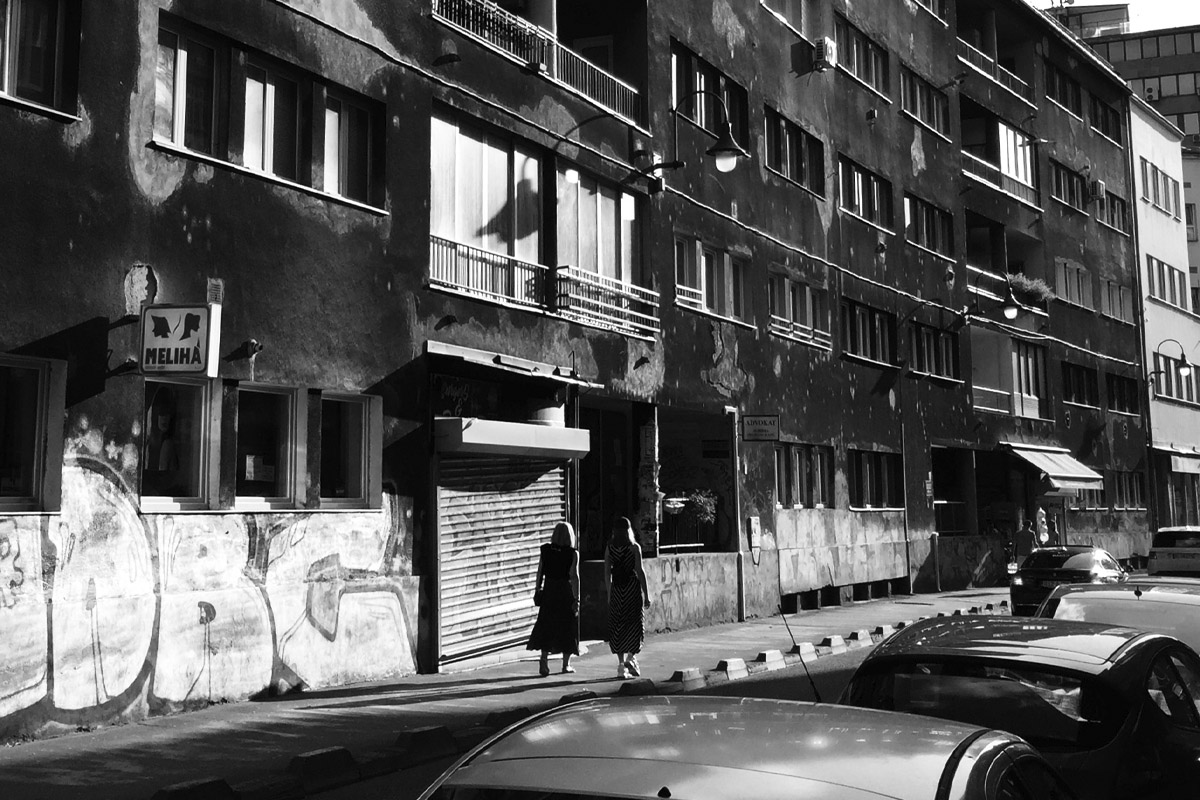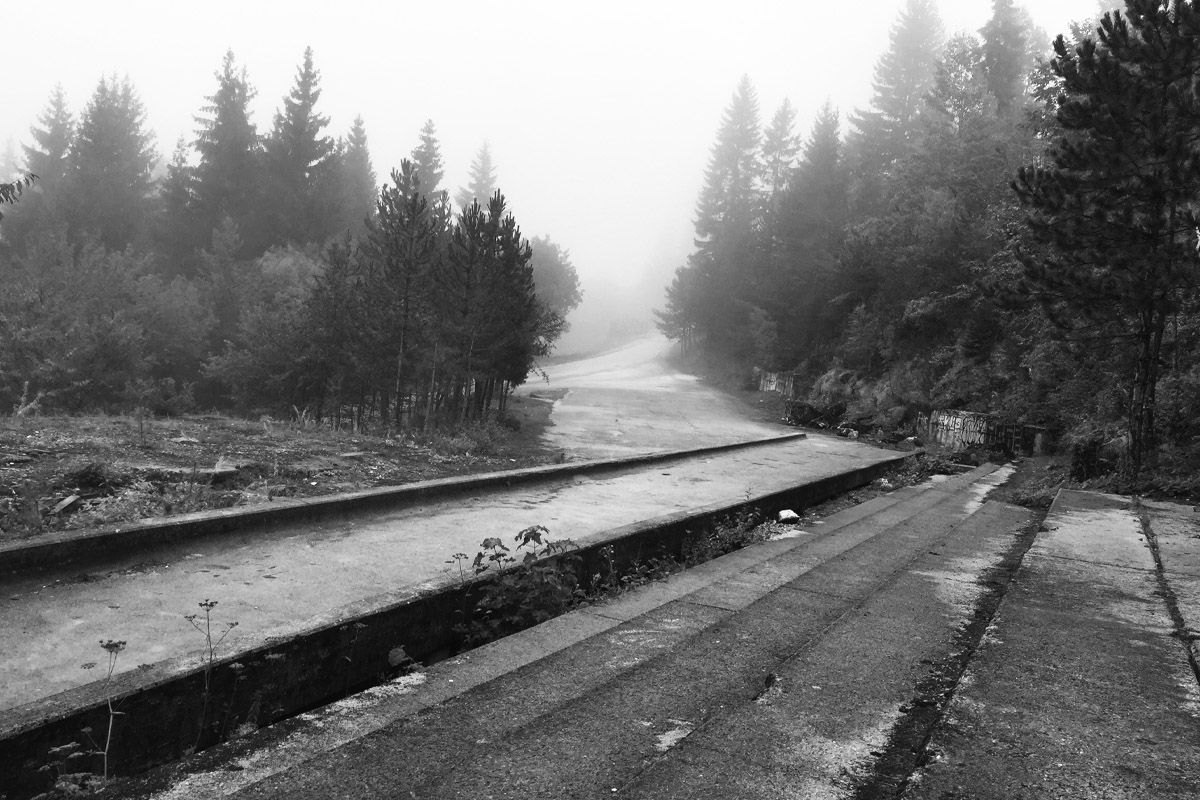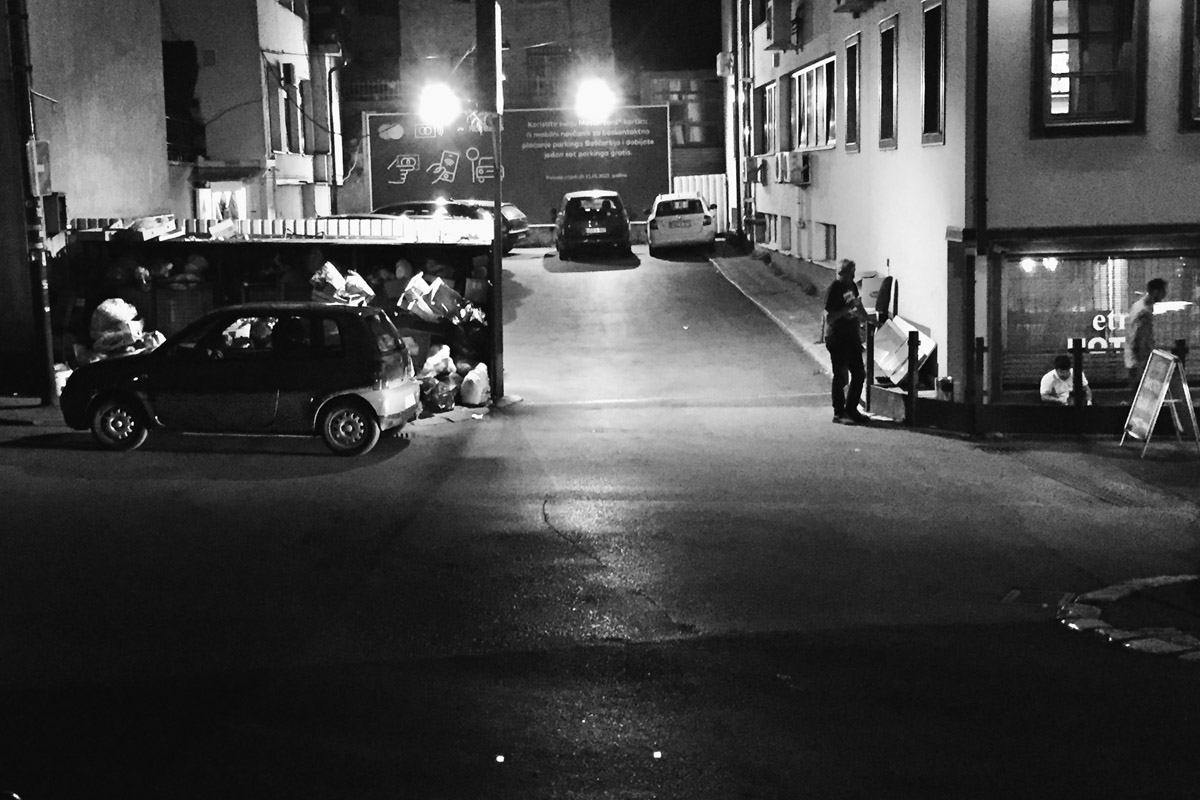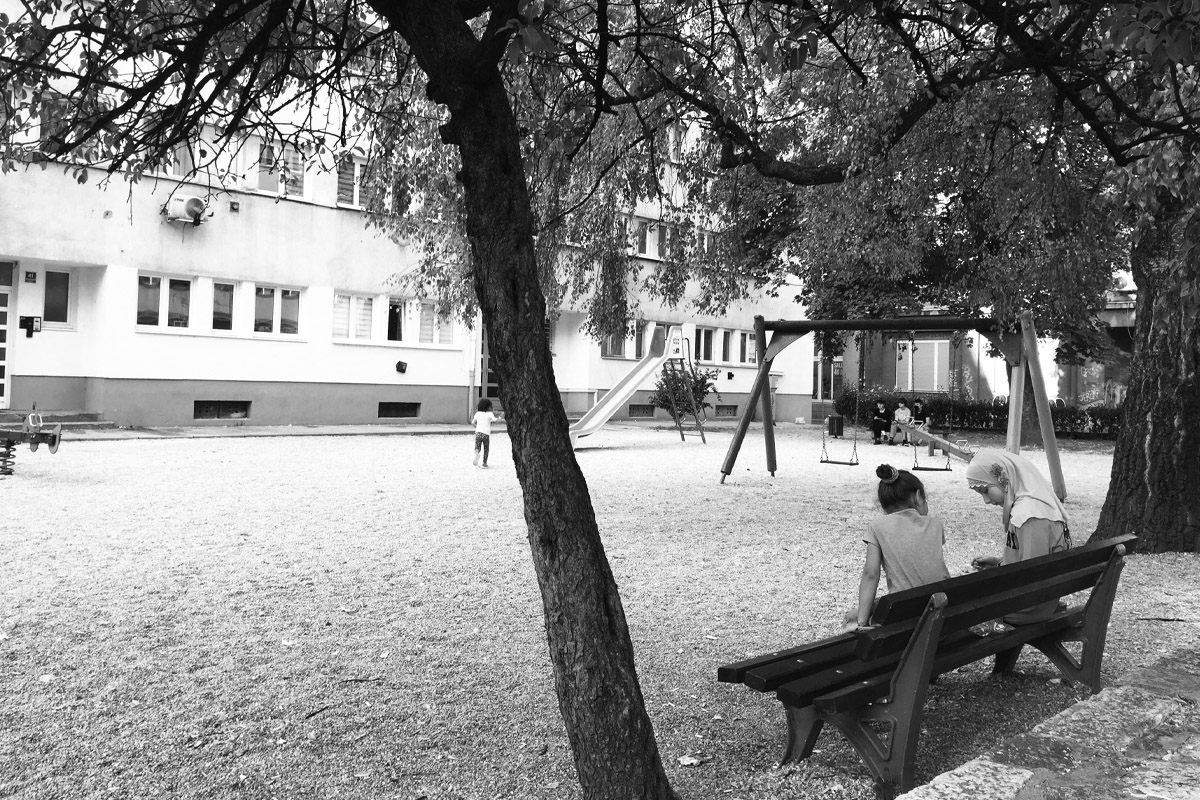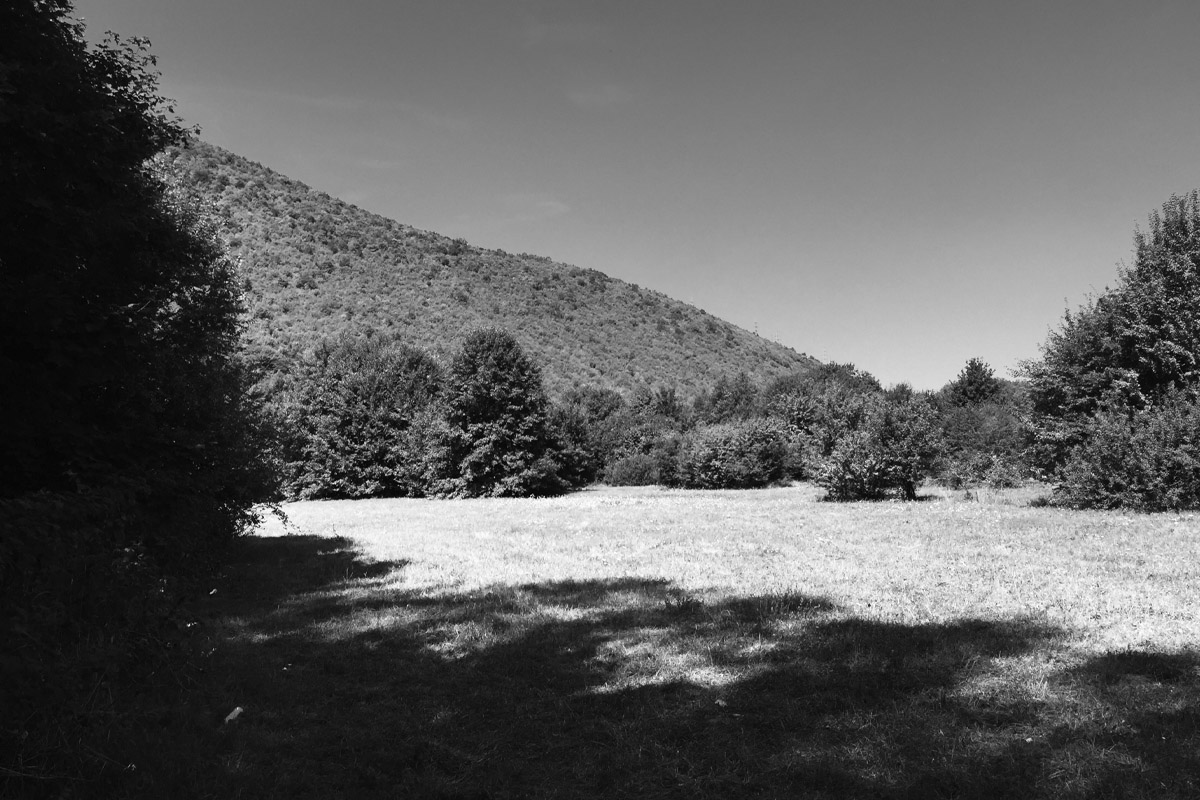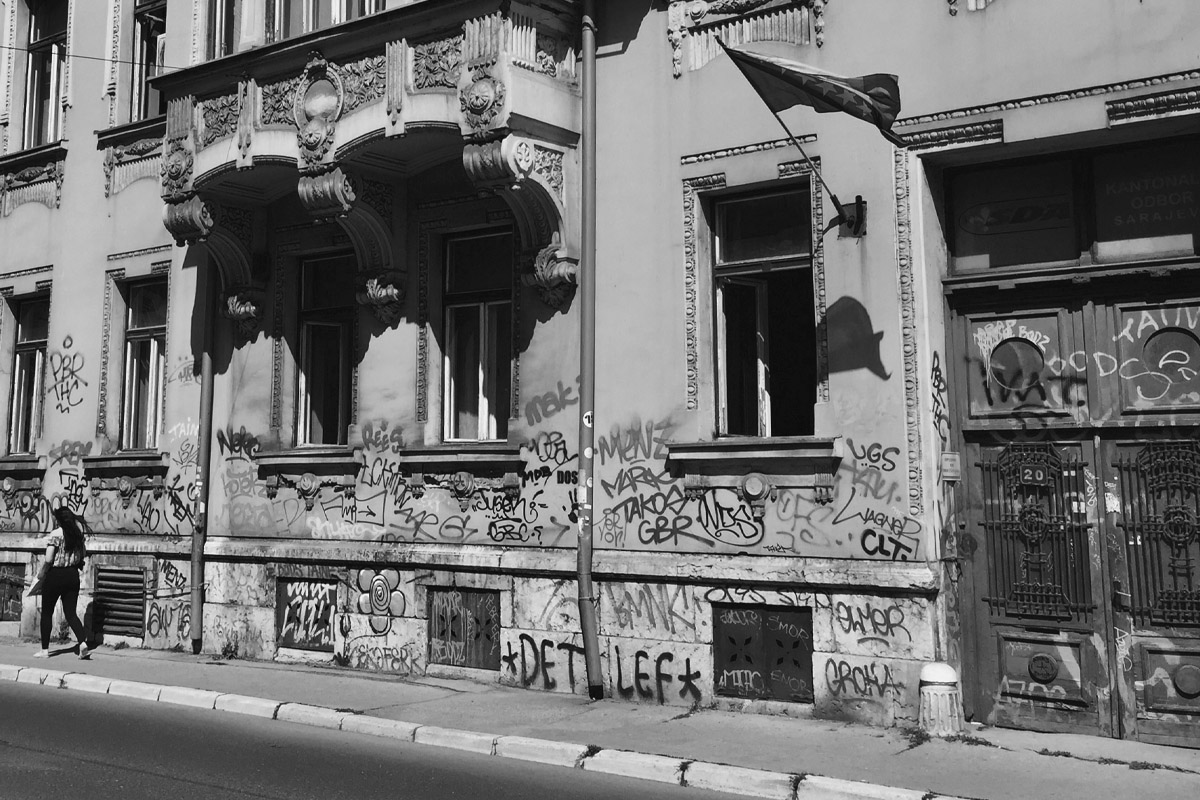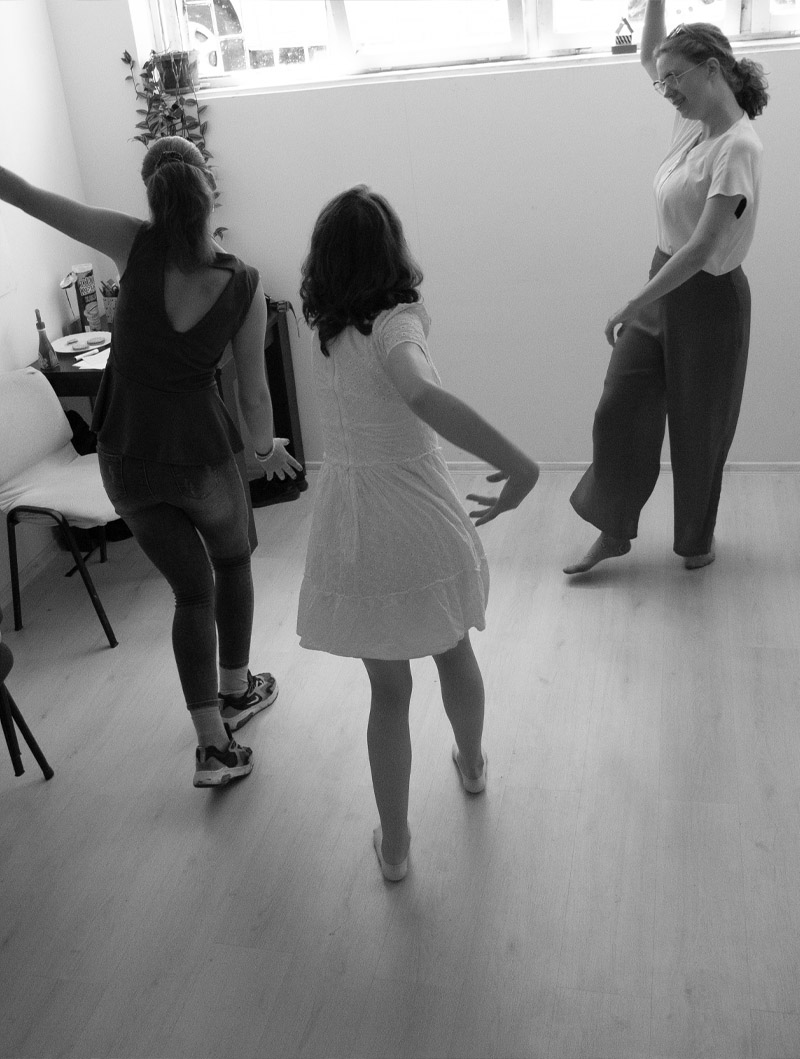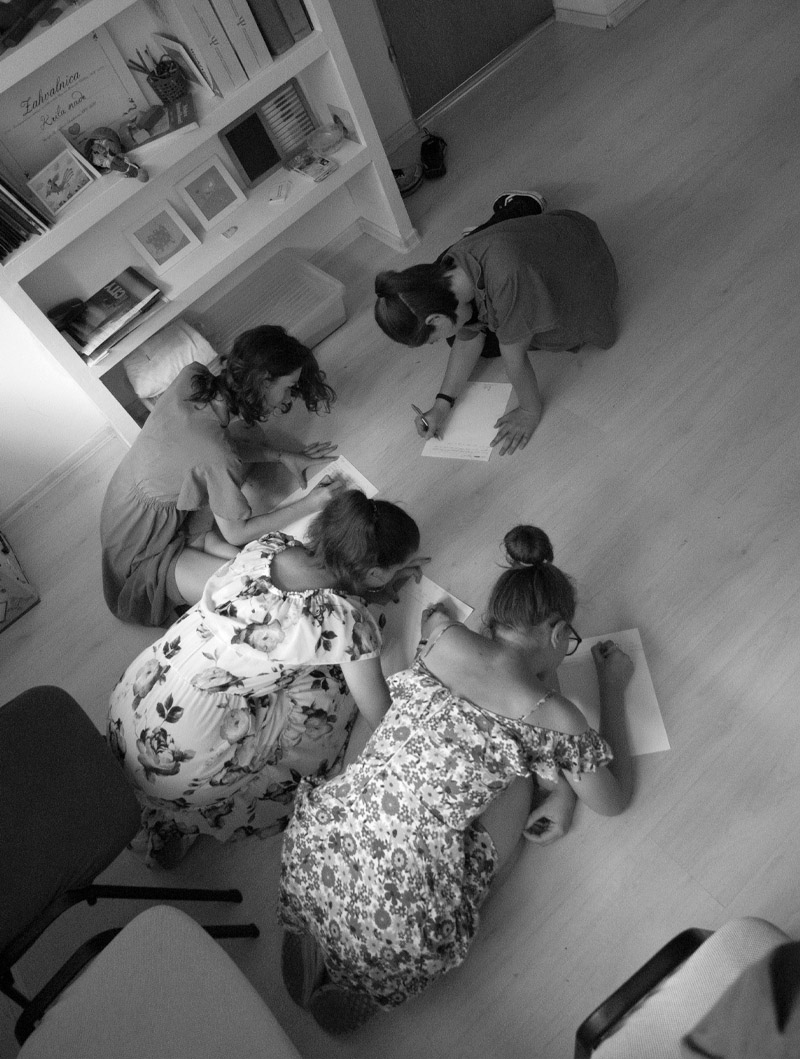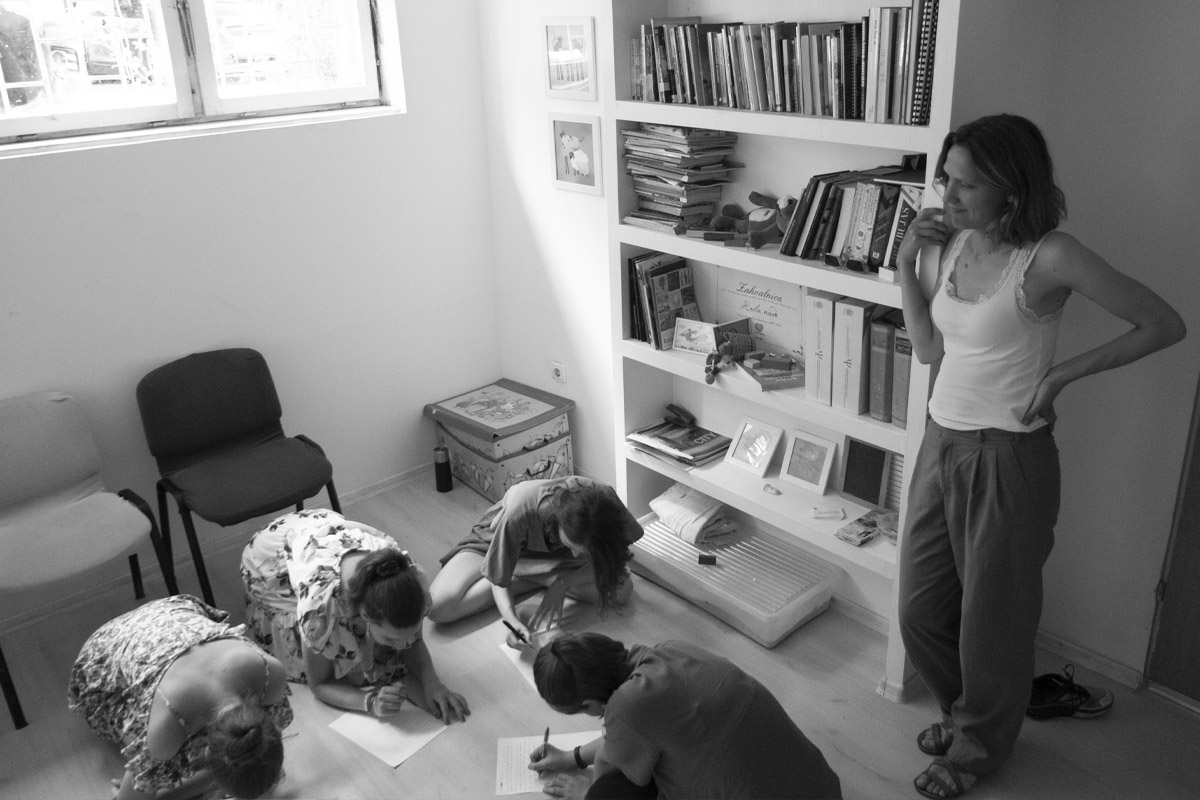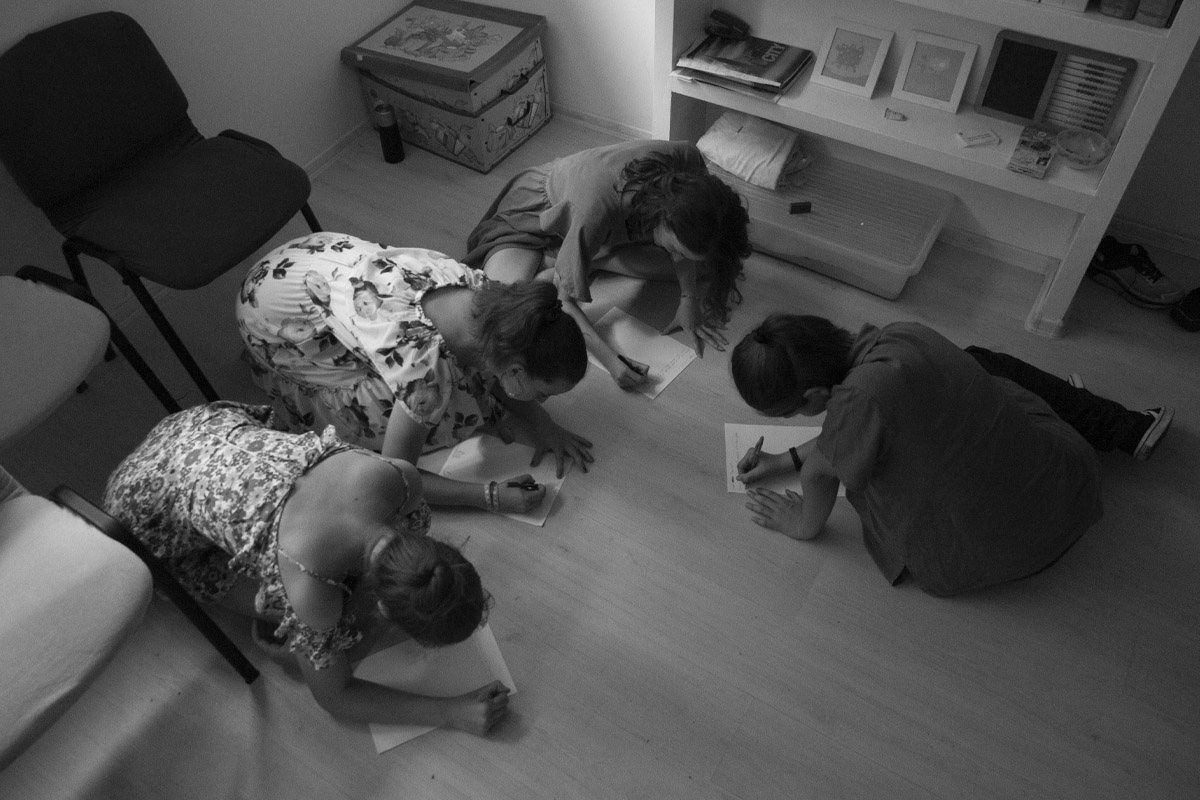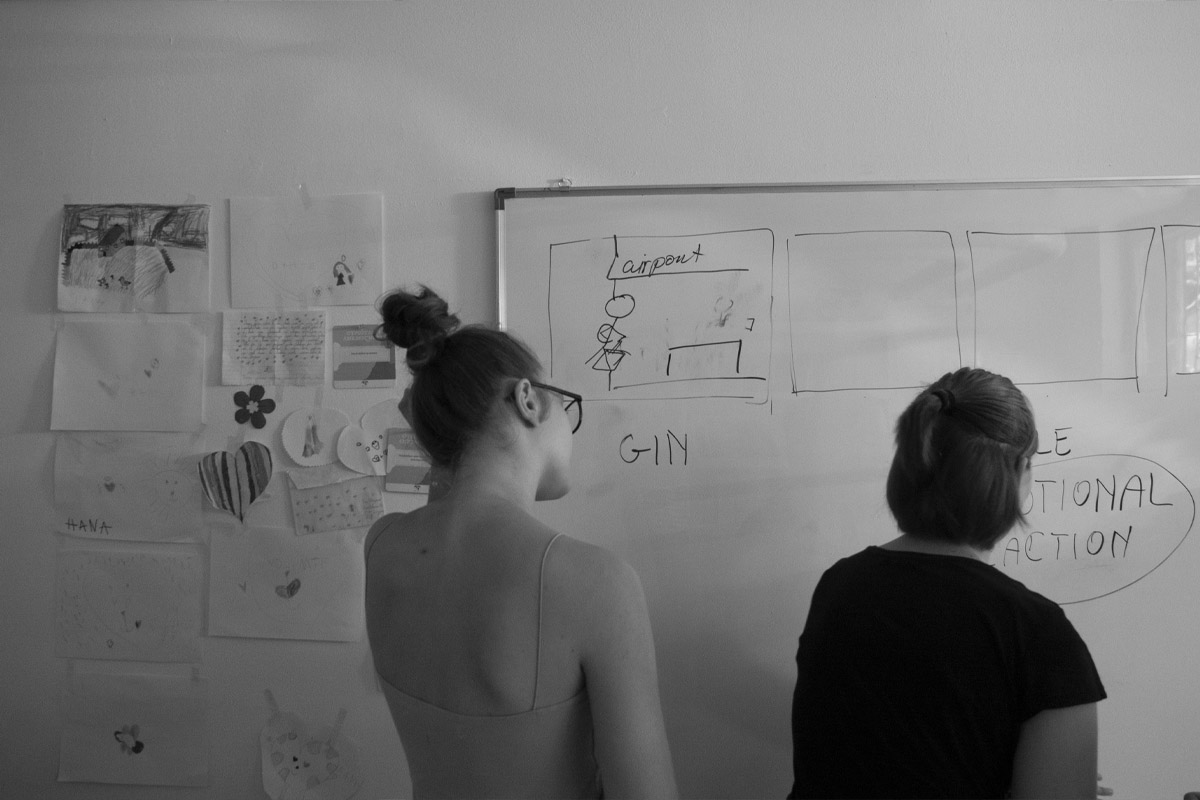Bosnia / Belgium
Since 2021 I have been conducting research and laying the groundwork for an international project centered on the trauma of the Jugoslavian war. This theater project focuses on the lingering consequences for the younger generations. Do they still perceive the war from the 1990ies as an everyday reality? Is there such a thing as collective trauma, and if so how does it manifest itself?
I want to use the theater as a creative way to explore these questions, and I want to do that in an international context. Because even though the context of the Bosnian war is very specific, the underlying human fears and feelings are universal.
The concept is to work with two groups, one in Bosnia and one in Belgium. I am curious to see what happens when those young people from different geographical and historic background play out each other’s stories.
How and to what extent would that prove enriching? What does the look of an outsider reveal that might otherwise stay hidden? Will this experiment make them reflect differently about freedom and about the fragility of peace?
In 2021 I went to Bosnia to conduct exploratory research. I talked to various drama therapists about how they employ the theater to help people deal with the trauma of the 1990ies.
During that research stay, I also interviewed Lejla, a waitress in a lively bar (as you will undoubtedly hear). This 24-year-old had a lot of insights into the mental health issues her (younger) generation struggles with, and the need to put that struggle into stories. You can listen to an edited version of that interview here.
“Brené Brown, researcher into shame, courage, vulnerability, love, in short everything that makes us human, said it thus: Above all else, we want to feel connection, as human beings. We are hardwired to make connections.”
(Elke Wiss, Socrates on Sneakers, Amsterdam 2020)
That need for connection is also the basis for the potential success of a theater project such as this one. Regardless of the specifics of time and place, people everywhere – whether in Bosnia or Belgium – can connect through stories and the stage, through shared reactions and emotions.
I’m aware of the well-defined history and trauma of the city of Sarajevo and Bosnia in general. But still, I am an outsider. That does not have to be a disadvantage, on the contrary. Such a detached position can help bring hidden stories to the fore and facilitate an open encounter.
I experienced this during the many interviews and research I conducted in various countries for previous theater shows. (In fact, ten years ago I interviewed several veterans and their family in Croatia and Bosnia).
In June 2022 I returned to Sarajevo. I conducted a workshop with 5 young people (between 13 and 15 years old). The contact with these youngsters had been established in cooperation with Wings of Hope.
That foundation is housed in the basement of a residential tower on the outskirts of Sarajevo. There, psychologists and youth workers tend to the various needs of vulnerable youths. One such youth is a boy who is homeless because his sexual orientation prompted his adult relatives to abandon them.
In a room of 4 by 6 meters, I started working with a handful such young people. Some were happy, others disappointed: they had all applied at a prestigious high school the previous day and had gotten different answers. Performing well at a reputable school is important to them, as it can be a way out of their plight and a way into a scholarship to study abroad.
I ask each teenager about his or her dreams and fears, strengths, and weaknesses. Alisa, Enver and Mara (not their real names) give incisive and open-hearted responses. Their answers demonstrate an eagerness to better themselves – and the world. You can listen to excerpts from these conversations here.
Alisa values tolerance. “I hate when people are judgmental and not open-minded. Why are you against something that you never actually met?”. She shields herself from ignorance and intolerance by reading voraciously and she dreams of studying at a foreign university.
Enver envies the freer thinking he sees in Western Europe. In Sarajevo, people too often are afraid to think outside the box. A thirst for knowledge is sometimes even frowned upon. “I hate anti-intellectualism”, the 15-year-old Enver states. Together with his mother, he tries to design an urban utopia: new cities that use architecture as a way to reshape society and promote innovation.
Mara too likes to think for herself. “I dislike when people are trying to control me.” She sees an international exchange as the ideal way to give herself that freedom of thought and to broaden her view of the world.
At the end of my session they ask me why I want to come and work with them. Europe doesn’t seem interested in them, so why am I? There is both hope and indignation in their questions. The hope to meet people from Europe. The indignation of being written off as non-entities.
When I talk about my plans, they are enthusiastic and would very much like to get in touch with peers from Belgium. Create texts, make theatre together. They’re eager to feel the freedom of the stage floor, but that same freedom is also frightening because they are vulnerable there.
What exact form would this experiment take? Well, I always start from the encounter. I’m in the room and there is also the other. I don’t come into that room with preconceived notions or a fixed narrative strategy. What happens between us is always the starting point. Together with the participants, I try to craft a theatrical language that is appropriate for the topics we want to address together.
This international project would mean that the two groups (one Bosnian, one Belgian) would meet in one or both countries for one or two weeks of workshopping each time. Within the latter part of this project, we work towards an actual performance. That way, we can also create interaction and reflection with an audience in an open performance.
Brasart is the main Belgian producer, and the Bosnian partner is the Foundation Wings of Hope in Sarajevo. There are ongoing talks with other partners in Belgium.



